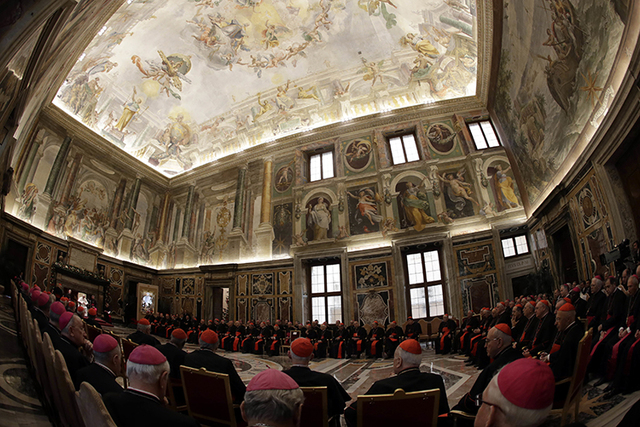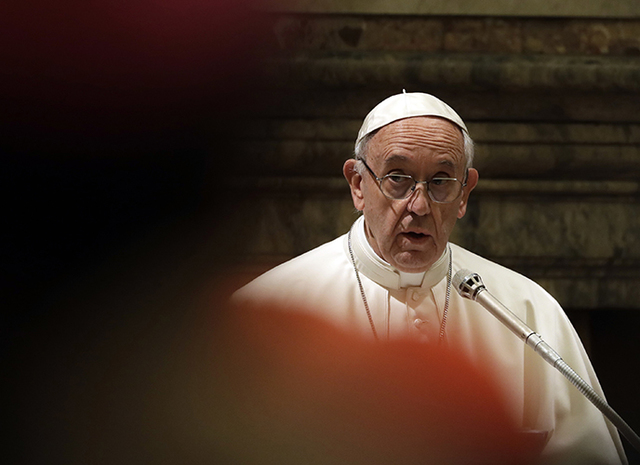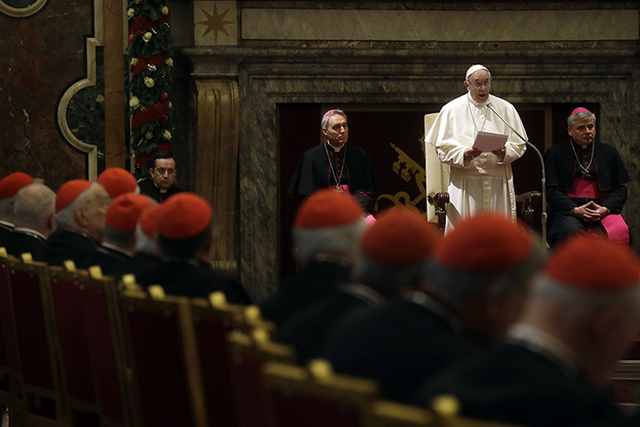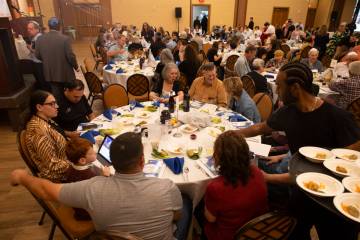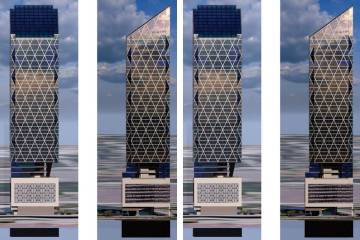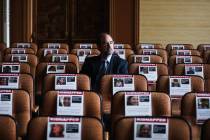In Christmas speech, Pope offers blistering commentary on resistance to reform
VATICAN CITY — Pope Francis on Thursday denounced the “hidden” resistance he’s encountering in reforming the Vatican bureaucracy, saying some of it is inspired by the devil and that the prelates who work for him must undergo “permanent purification” to serve the Catholic Church better.
For the third year in a row, Francis took the Vatican bureaucracy to task in his annual Christmas greeting. He said the reform process he was elected to push through in 2013 isn’t aimed at a superficial face-lift for the Holy See, but rather a profound change in mentality among his collaborators.
“Dear brothers, it’s not the wrinkles in the church that you should fear, but the stains!” he said.
In 2014, Francis stunned the Vatican Curia, or administration, when he listed the 15 “spiritual ailments” its members were suffering. He accused them of using their careers to grab power and wealth, of living “hypocritical” double lives and of forgetting — due to “spiritual Alzheimer’s” — that they’re supposed to be joyful men of God.
Last year, Francis listed a “catalog of virtues” they were supposed to show instead, including honesty, sobriety, respect and humility.
This year, he gave the priests, bishops and cardinals who work for him 12 guidelines that are inspiring his reform process, which has involved consolidating Vatican departments and creating new ones.
Saying the Vatican must modernize to better respond to the needs of today’s church, Francis said he wanted the Vatican to be more multicultural and involve more lay Catholics, especially women, in decision-making. He is also insisting on greater professional qualifications for its staff.
Significantly, he called for a “definitive end” to the Vatican’s face-saving way of getting rid of unqualified or problematic staff, affectionately known as “promote and remove.”
“This is a cancer!” Francis said.
Francis said it’s entirely natural that there should be resistance during such a profound process of reform — but he said there’s good resistance and bad.
Positive resistance is an open willingness for dialogue but “hidden” resistance comes from the “fearful or hardened hearts” of people who say they want change but really don’t, he said.
And then there’s “malevolent resistance … when the devil inspires nasty intentions,” Francis said. “This last type of resistance is hidden behind words of justification and often accusations, by people taking refuge in tradition, in appearances, in formalities.”



